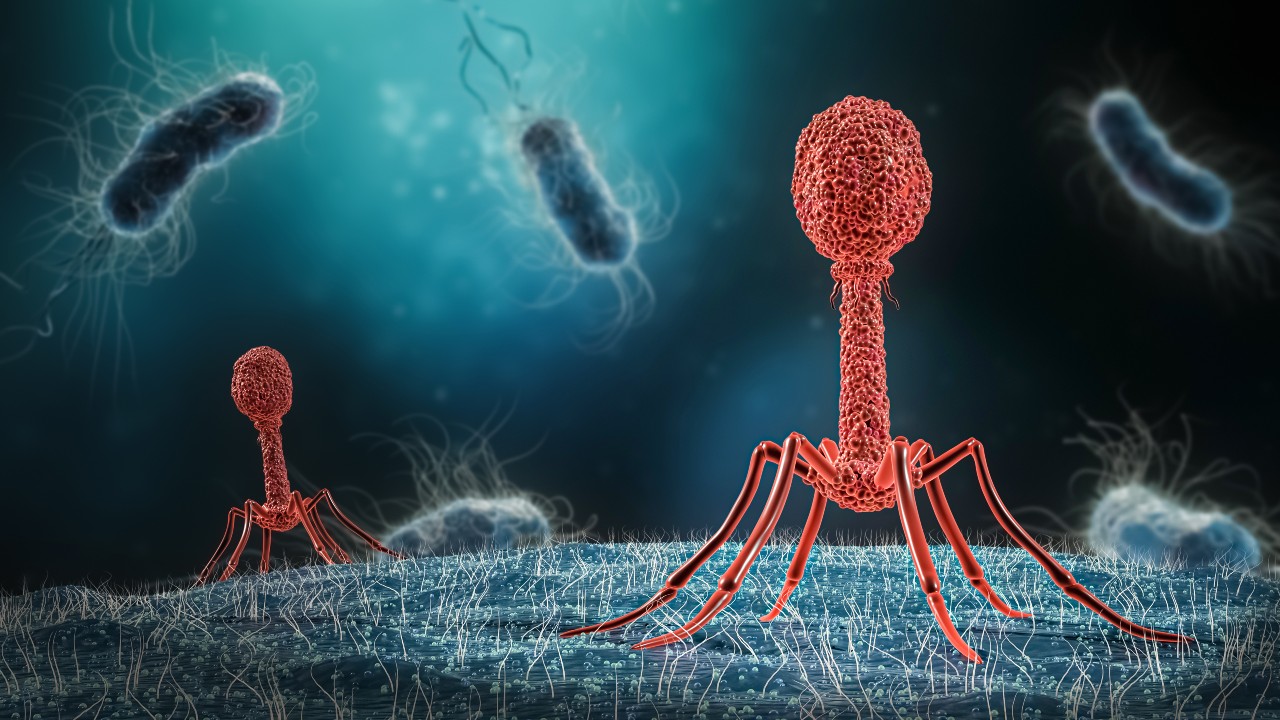Media Release: Nelson, New Zealand – 10 July 2024 – Kimer Med $10M closer to…
But aren’t some viruses good?
Occasionally, we see objections to antiviral drugs, especially those targeting broad spectrum efficacy, based on the idea that viruses can be beneficial to human life. Usually however, these objections rest on a straw man: including viruses which attack bacteria (known as bacteriophages) along with ones which infect human cells.
Bacteriophages have an important role in controlling bacterial populations, including bacteria on human bodies. Some bacteriophages have been used as a sort of viral antibiotic to eliminate bacterial infections which are resistant to antibiotics or other conventional treatments. Clearly, these are beneficial to human life.

It would be undesirable to destroy bacteriophages, in general. In fact, the antiviral drugs we’re developing are neither targeting them, or capable of affecting them. Our drugs are designed to enter human or animal cells, which are very different from bacterial cells.
In the vast scientific literature on viruses infecting humans, there is very little to suggest that any such viruses serve an essentially beneficial role – unlike many kinds of beneficial bacteria which reside both on our outside and in our guts. Viruses are technically defined as “obligate intracellular parasites” – meaning that they have no living existence apart from cells which they parasitically infect in order to reproduce. Typically this process results in the destruction of the infected cell.
There are important exceptions. The viruses causing different types of Hepatitis are capable of infecting hepatocytes (liver cells) on a long term basis without immediately destroying them. This doesn’t do the liver cell any good, and ultimately causes the disease of hepatitis.
Herpes viruses are capable of infecting cells and then becoming dormant, in effect, creating a long term chronic infection. It is now known that Herpes Simplex 1, best known for causing cold sores, probably has a major role as a cause of Alzheimer’s Disease.
The human genome also contains viral genes that were integrated into it by certain types of viruses over many generations. At times, entire viruses can be encoded and expressed from this genetic material, and these are known as endogenous retroviruses (ERVs). Individually, some of the genes actually serve vital human functions. The env gene of Human Endogenous Retrovirus type W (HERV-W) codes for the protein Syncytin-1 which is necessary for placental development – so human reproduction depends on it. But when an entire functional ERV becomes expressed, the viruses are connected to human diseases including cancer.
The drugs we’re developing have no ability to affect particular viral genes such as that; they would only target cells with an active viral infection which are therefore either going to be naturally destroyed or which are malfunctioning. In short, we’re targeting the root cause of viral disease in humans and animals.


